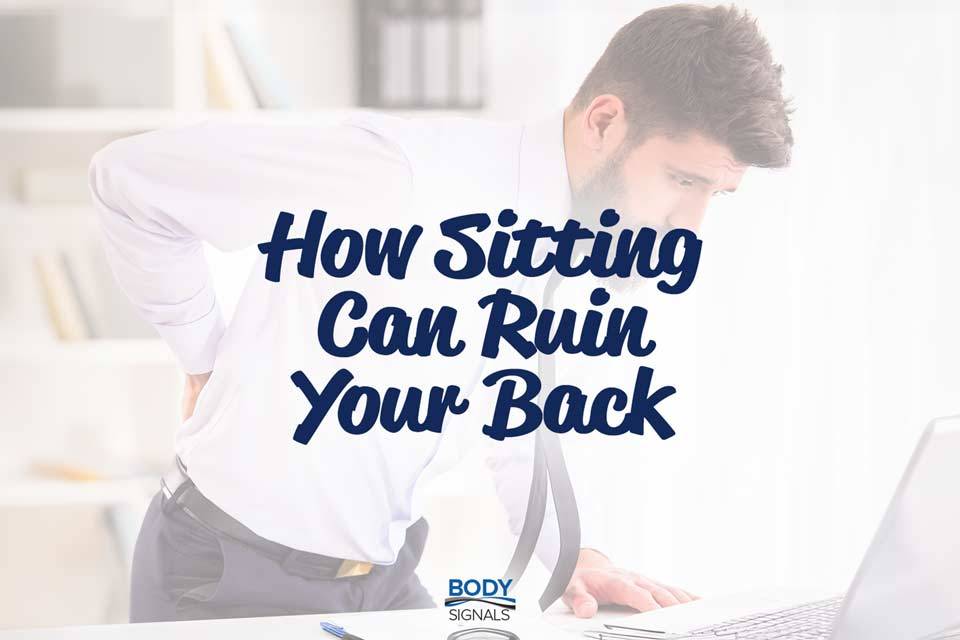How Sitting Can Ruin Your Back
Body Signals
 Posted by: Kevin Day
1 year ago
Posted by: Kevin Day
1 year ago
Bottom Line:
Our bodies are designed to move! Many of us however, are trapped commuting to work or spending long hours at a desk staring at a computer screen. For all of the advantages of the modern world, we have noticed an increase in sedentary tendencies. Shockingly, this mostly sedentary lifestyle has been linked to a vast array of disease. Researchers have found too much sitting each day is as dangerous as smoking! Yes, it’s true. Too much time sitting may be one of our most challenging health epidemics.

Why it Matters:
Long hours of sitting each day wreak havoc on the muscles and support system of your low back. The deep stabilizing muscles of your low back atrophy and your hamstrings shorten, or become tight. When your spine doesn’t have strong stabilizing muscles, you are more likely to have an injury. After an injury, many of us slow down our activity even more. It’s a vicious cycle! But, you have the power to stop this cycle with a combination of Chiropractic care and exercise. Here are a few pointers:
- Too much sitting is now considered as dangerous as smoking.
- Our bodies are designed to move.
- Sedentary lifestyles can lead to a vast array of diseases, but exercise and chiropractic can halt many of these challenges.
Next Steps:
Considering the dangers of too much sitting, you should take every opportunity you can to stay active throughout the day. Standing desks are a fantastic way to change positions and keep your back healthy while still getting work done on the computer. Also, taking short breaks each hour to stretch or walk around the office is a great way to increase your energy level and engage the muscles supporting your low back. If you’re technologically savvy, there are even wearable devices available you can program to give you a small vibration as a reminder that it’s time to stand up and to get moving!
Science Source(s):
Traditional and Emerging Lifestyle Risk Behaviors and All-Cause Mortality in Middle-Aged and Older Adults: Evidence from a Large Population-Based Australian Cohort. December 2015
Categories:
Tags:
About: Kevin Day
Dr. Kevin, an alumnus of Tippecanoe Valley and Manchester College, earned his chiropractic doctorate from Sherman College of Chiropractic in Spartanburg, South Carolina. His expertise in Gonstead Chiropractic is acknowledged by the International Seminar of Gonstead Chiropractic, and he holds several certifications in Extremities Management from the Gonstead Seminar.
You May Be Interested In:
Your Journey to Great Health Begins Now
Receiving regular chiropractic care is about more than getting relief from neck or back pain, it enables you to live a full, healthy, active life at any age.
Chiropractic Care
Align your body and promote natural healing with our chiropractic services.
Weight Management
Achieve your ideal weight with our guided programs.
Functional Nutrition
Personalized nutrition strategies for a healthier you.
Corporate Wellness
Boost health and productivity in your workplace with our wellness program.



